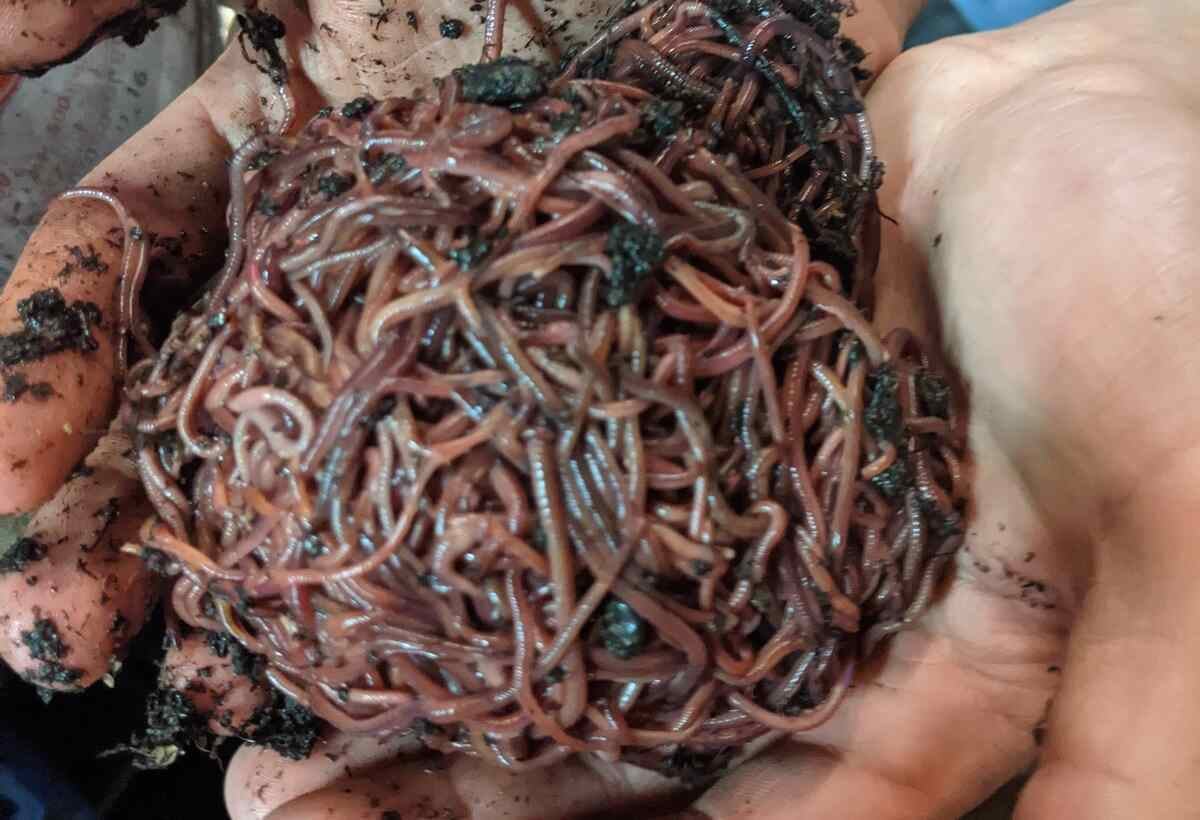Red Wiggler Worms Demystified: Unlocking the Secrets of Vermiculture for Greener Living and Nutrient-Rich Soil
In the world of sustainable techniques for enhancing soil quality and advertising eco-conscious living, red wiggler worms play a crucial yet commonly overlooked role. These humble creatures have the exceptional ability to transform natural waste right into nutrient-rich castings that function as a powerful natural fertilizer. By diving into the globe of vermiculture, one can reveal a variety of benefits that extend much beyond traditional composting techniques. Recognizing the ins and outs of caring for these worms, maximizing their environment, and utilizing their spreadings can lead to a greener way of living and healthier dirt for plants to grow.
The Duty of Red Wiggler Worms
Red Wiggler worms play a vital duty in composting systems by successfully damaging down raw material into nutrient-rich spreadings. These voracious eaters take in a selection of natural materials, such as cooking area scraps, yard waste, and paper products. As they feed, the worms' digestive processes break down the raw material right into a fine, dark, and nutrient-dense product recognized as worm castings or vermicompost.
The spreadings produced by Red Wiggler worms are highly valuable for soil health and plant development. They are rich in important nutrients like nitrogen, potassium, and phosphorus, which are vital for supporting healthy and balanced plant growth. Additionally, worm spreadings have beneficial microorganisms and enzymes that help enhance soil structure, rise water retention, and improve nutrient uptake by plants.
Advantages of Vermicomposting

It enhances dirt structure, enhances soil oygenation, and increases soil dampness retention. Vermicompost additionally enriches the dirt with vital nutrients like potassium, phosphorus, and nitrogen, promoting plant growth and overall dirt fertility.
Furthermore, vermicomposting supports sustainable gardening techniques by giving a all-natural and chemical-free option to synthetic plant foods. Red Wiggler Worms. This eco-friendly approach not only enriches the soil but likewise helps in reducing dependence on harmful chemicals, promoting a greener and extra lasting way of horticulture
Establishing a Worm Bin
When establishing a worm container for vermicomposting, appropriate arrangement is crucial to ensure the success of the composting visit the site process. The very first step in setting up a worm container is selecting a suitable container. This can be a plastic container or wood box that provides enough space for the worms to move and has proper drain openings to avoid waterlogging. Next, a bed linens product such as shredded newspaper, cardboard, or coconut coir need to be contributed to the bin. This bed linen provides a comfy environment for the worms and aids preserve dampness levels.
After adding the bed linen, present the red wiggler worms to the container. The worms need to then be supplied with food scraps such as fruit and vegetable peels, her latest blog coffee premises, and eggshells.
Frequently check the dampness levels and temperature level in the worm bin to ensure ideal conditions for the worms. With appropriate configuration and upkeep, the worm container will successfully transform natural waste into nutrient-rich garden compost for your plants and garden.
Gathering Worm Spreadings
To successfully gather nutrient-rich worm castings from your vermicomposting system, a systematic harvesting technique is important. When it comes time to harvest the worm spreadings, there are a couple of essential actions to comply with to guarantee a successful process.

Troubleshooting Common Issues
Determining and addressing usual challenges that may develop during the vermicomposting process is vital for preserving a healthy and balanced and efficient worm container. Adding excess food scraps can lead to a buildup of dampness and level of acidity in the worm bin, potentially harming the worms. An additional issue is undesirable smells originating from the worm container.
In addition, if the worm populace is declining or the worms show up harmful, it could be as a result of environmental stressors such as extreme temperatures or pH levels. Checking these aspects and making required changes is necessary for the wellness of the worms. By fixing these usual issues quickly, vermicomposters can make sure a successful and smooth vermicomposting process while keeping a flourishing worm population.

Verdict
In final thought, red wiggler worms play a crucial function in vermiculture by damaging down natural issue into nutrient-rich dirt. The advantages of vermiculture consist of greener living and boosted soil top quality. Setting up a worm container is crucial for successful vermiculture, and harvesting worm castings gives valuable garden compost for gardening. By recognizing and fixing usual problems, people can unlock the keys of vermiculture for lasting living and much healthier soil.
As they feed, the worms' digestive processes damage down the natural matter right into a penalty, dark, and nutrient-dense material understood as worm spreadings or vermicompost.
The spreadings generated by Red Wiggler worms are extremely advantageous for dirt wellness and plant growth. Including excess food More Info scraps can lead to a build-up of moisture and acidity in the worm bin, possibly hurting the worms.Furthermore, if the worm population is declining or the worms show up undesirable, it can be due to ecological stress factors such as extreme temperature levels or pH levels. Establishing up a worm bin is essential for effective vermiculture, and harvesting worm castings supplies useful compost for gardening.